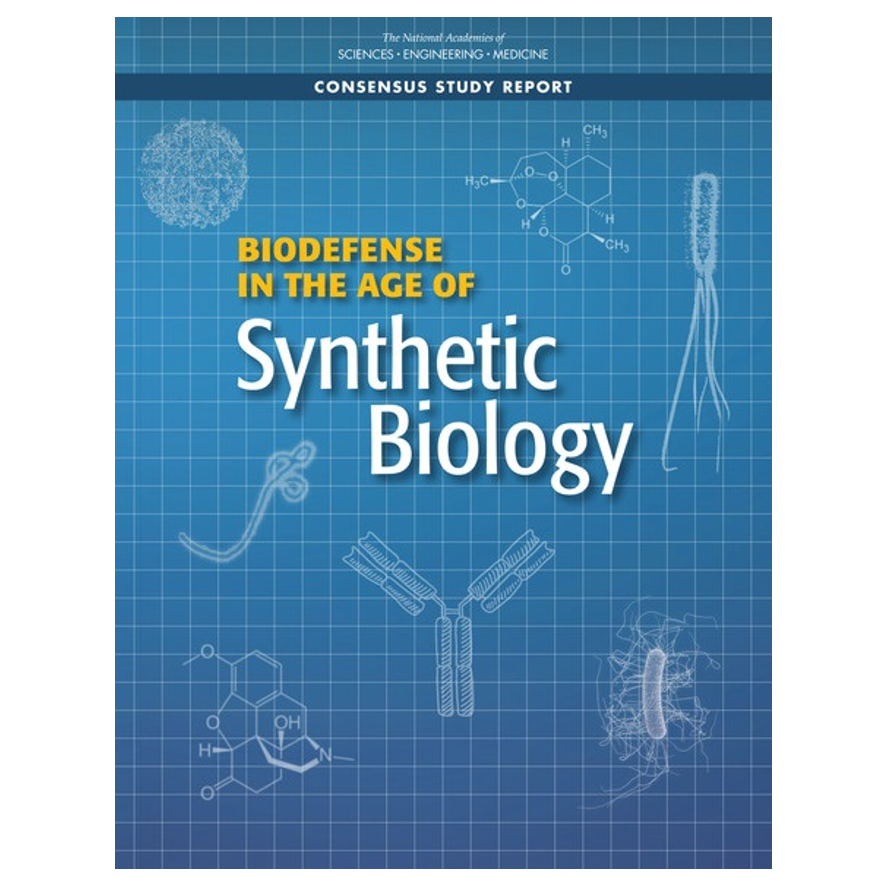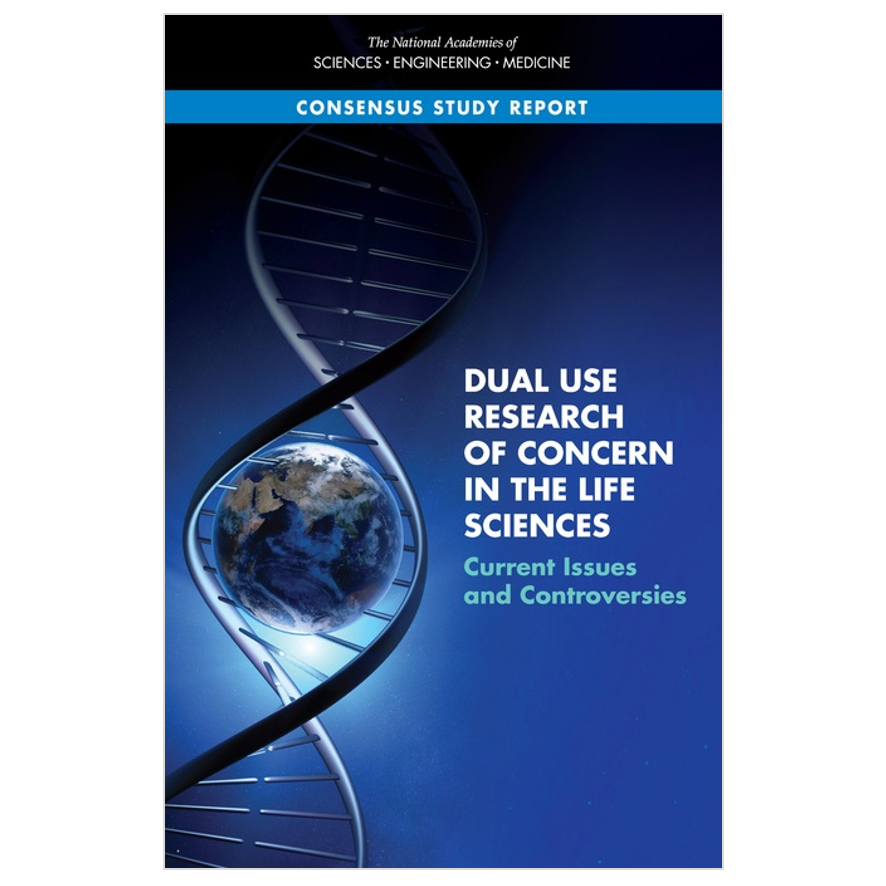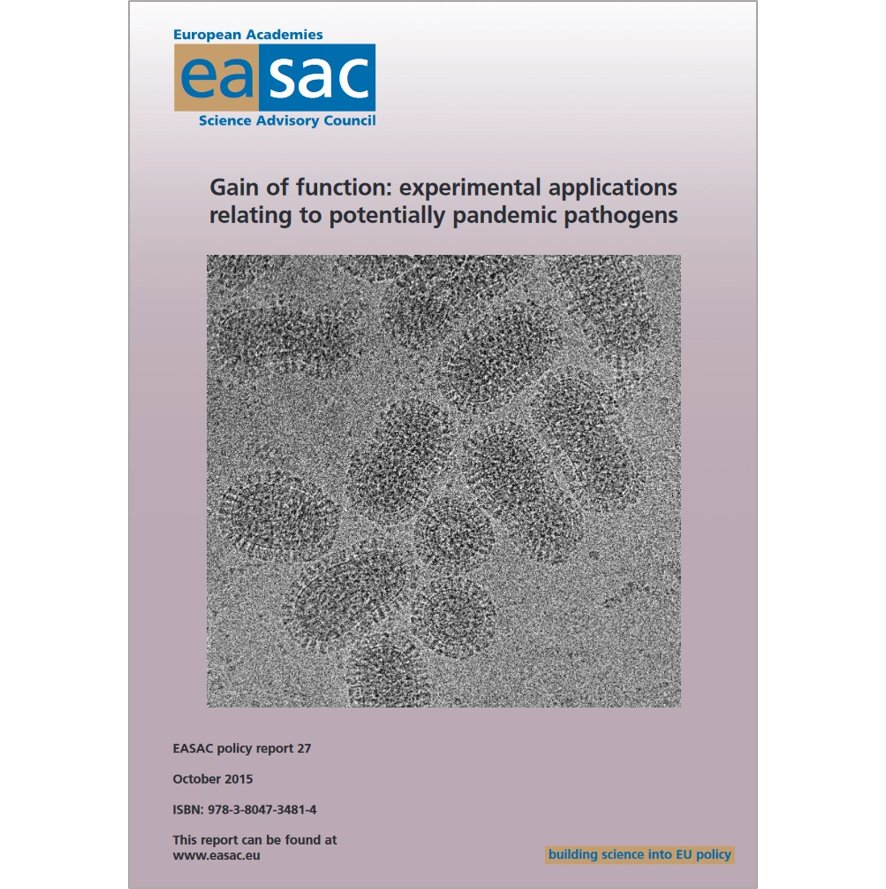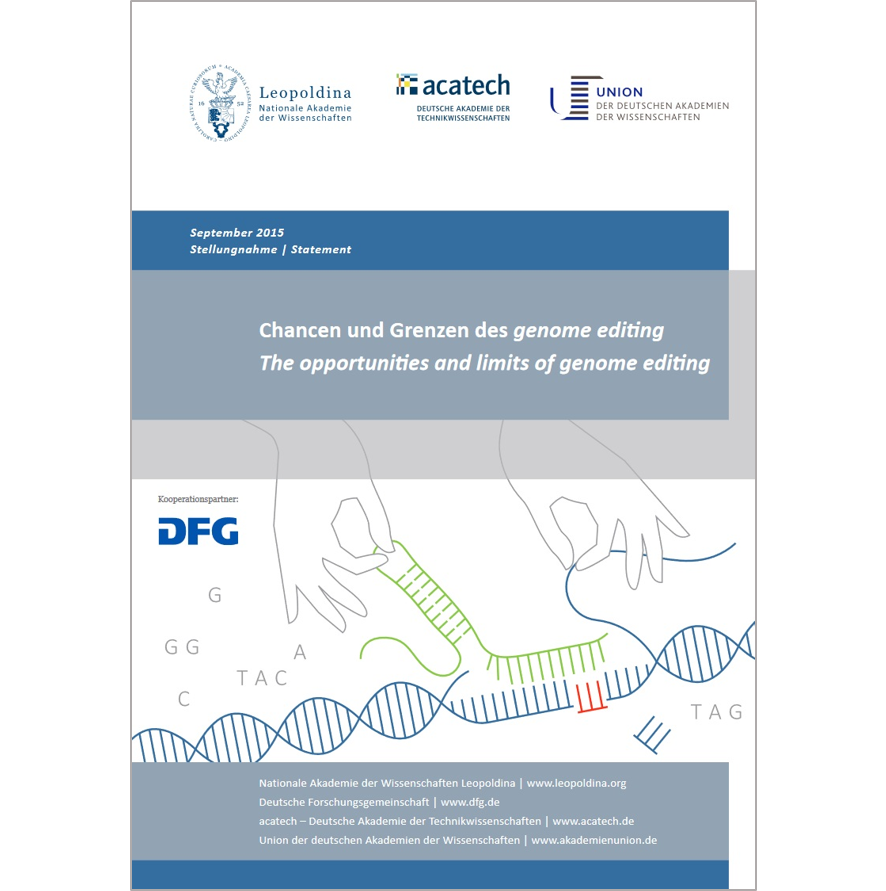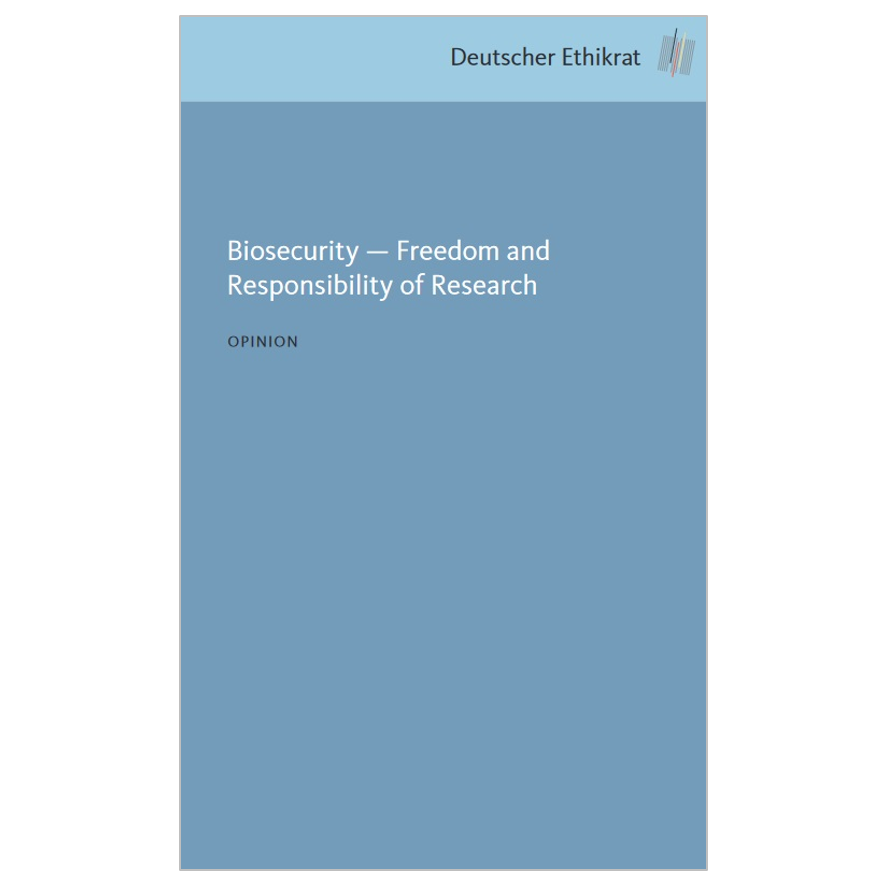Tags

-
Startseite
- /
- Academy Statements
Publikationen
-
Biodefense in the Age of Synthetic Biology
Mehr lesen: Biodefense in the Age of Synthetic BiologyScientific advances over the past several decades have accelerated the ability to engineer existing organisms and to potentially create novel ones not found in nature. Synthetic biology, which collectively refers to concepts, approaches, and tools that enable the modification or creation of biological organisms, is being pursued overwhelmingly for beneficial purposes ranging from reducing the…
-
Dual Use Research of Concern in the Life Sciences: Current Issues and Controversies
Mehr lesen: Dual Use Research of Concern in the Life Sciences: Current Issues and ControversiesThe potential misuse of advances in life sciences research is raising concerns about national security threats. “Dual Use Research of Concern in the Life Sciences: Current Issues and Controversies” examines the U.S. strategy for reducing biosecurity risks in life sciences research and considers mechanisms that would allow researchers to manage the dissemination of the results…
-
Gain of Function: experimental applications relating to potentially pandemic pathogens
Mehr lesen: Gain of Function: experimental applications relating to potentially pandemic pathogensInfluenza outbreaks cause significant burden to public health. The inability to predict which specific virus subtypes will trigger the next influenza pandemic emphasizes the need to address gaps in the knowledge required to manage future pandemics. Research, including the study of virus transmissibility, host range, resistance, immunogenicity, pathogenicity and virulence, is critical to fill many…
-
The opportunities and limits of genome editing
Mehr lesen: The opportunities and limits of genome editingJoint Statement of the German Research Foundation, the National Academy of Sciences Leopoldina, acatech – National Academy of Science and Engineering, and the Union of the German Academies of Sciences and Humanities. Modern molecular techniques often referred to as “genome editing” or “genome surgery” are currently revolutionising molecular biology research. Technologies such as CRISPR-Cas9 allow…
-
Biosecurity — Freedom and Responsibility of Research: Opinion
Mehr lesen: Biosecurity — Freedom and Responsibility of Research: OpinionSome research results obtained in the life sciences can be used not only for the benefit of individuals and society as a whole, but also misused with intent to cause harm. Research such as this is referred to as Dual Use Research of Concern (DURC). To counteract such misuse proactively the German Ethics Council advocates…

